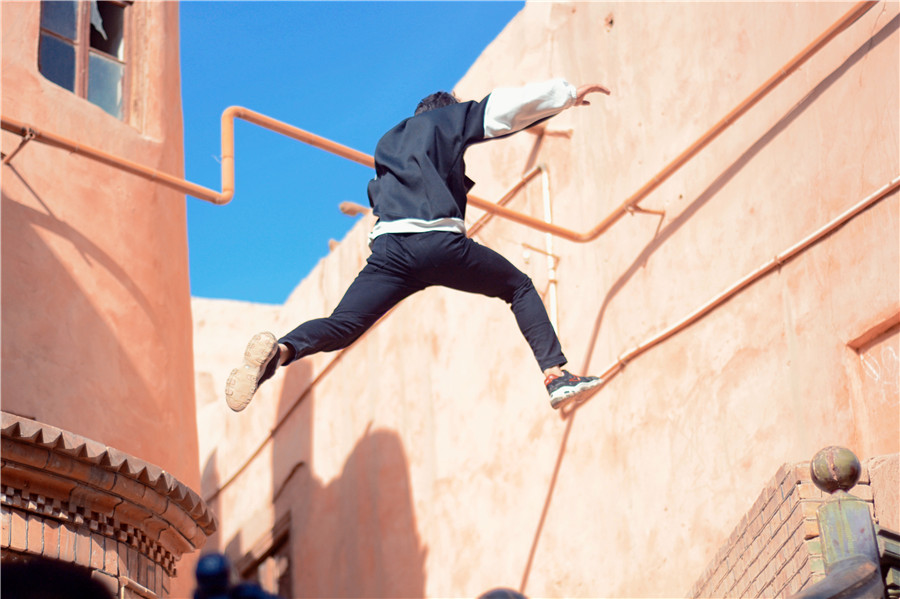In urban jungle gym, Kashgar's young athletes play
 0 Comment(s)
0 Comment(s) Print
Print E-mail China Daily, January 3, 2019
E-mail China Daily, January 3, 2019
Tucked into a corner of Kashgar's old city, near the busy and bustling hat bazaar, is a cluster of narrow alleys and a range of high and low houses, one sitting slightly uphill from the other. To Mardan Alip, the buildings and dead ends looked like an opportunity: a chance for fun, something to jump on.

The 18-year-old high school student in the oasis city of 500,000 people in the Xinjiang Uygur autonomous region, was always jumping, vaulting and flipping in the air, using whatever structures he could find-ranging from park benches to rooftops.
In many cities of Xinjiang, the latest outdoor craze for the young is parkour-a training regimen that started in France and has gone viral worldwide.
The first time Mardan saw a parkour video online three years ago, he fell in love with this sport. He began by learning how to jump precisely from the ground to stairs, landing on his feet again and not breaking anything in the process. For him this was somewhat difficult at first.
"I had practiced for two years and fell onto the ground very hard countless times before I learned to backflip. It felt so cool when I finally made it," he said.
Mardan didn't have professional coaches, relying solely on videos online for examples to imitate. He has been injured many times in recent years because of a lack of expert guidance. He had a sprained ankle, which prevented him from walking for three months, and an injury to his collarbone after practicing a 360-degree backflip. Yet his passion for parkour has never diminished.
Mardan eventually made friends with a bunch of like-minded parkour lovers and they established their own team. They share the new spots they find that are perfect for parkour and take care of each other when injuries crop up.
They have been paying attention to professional competitions, either domestic or international, and waited to watch the live broadcast on the internet. They repeatedly watched the technical moves and felt that they could do those themselves.
Their biggest obstacle? Their parents. From the older generation's point of view it's not only damaging their health but also ruining their future.
"When I made two backflips on the roof of an old house two years ago, I lost my balance and fell to the ground. Not far away, my mother saw it happen. She was so frightened at the time that she locked me up at home," he said.
But his persistence in practice and determination to go to a college in Beijing-where there are more opportunities for parkour-showed a bright side, and he persuaded his parents to support him.
"It is not a race or any kind of competition to me," Mardan said. "Rather it is a way for you to compete against the world around you, showing that you can conquer obstacles and take a more efficient route than the one society dictates," he said.





